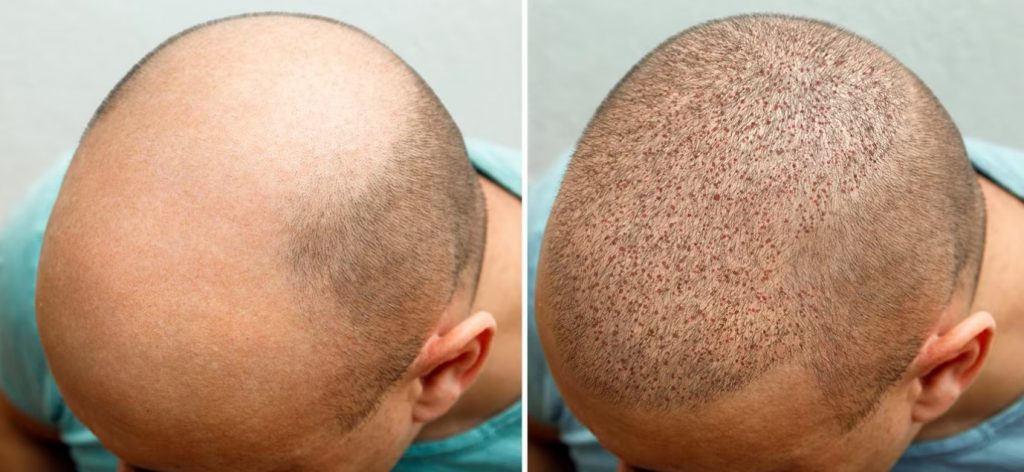
A hair transplant, also known as “hair restoration,” is a type of surgery that moves a patient’s hair to a thinning or balding area. This surgery is an option for those who have opted for other hair loss treatments but failed to address hair loss problems. Today, hair transplants in the Philippines have become more popular due to the variety of clinics that offer this surgery.
After the procedure, patients may experience tenderness or soreness in their scalp. To address these, hair doctors from hair restoration clinics in the Philippines advise their patients to take pain medication to mitigate the pain, antibiotics to prevent infection, and anti-inflammatory medicines to alleviate the swelling. Hair loss is also common in the first 2–3 weeks after surgery, but patients will start to notice new hair growth after a few months.
Patients who have had hair restoration in the Philippines typically require 2–5 days to return to their normal daily routines. Also, to protect the scalp and prevent infection, hair loss doctors in the Philippines will put bandages over the scalps of patients for one to two days. But bear in mind that the recovery rate varies from one patient to another.
After a few days of having a hair transplant procedure, there are certain things that the patient must avoid. These are:
Hair transplantation has become a popular and effective solution for hair loss. Yet it is important to have this at a credible hair loss treatment clinic that guarantees the safety and health of their patients. Also, it is important to choose the best hair transplant doctor who performs this operation frequently and effectively. At the end of the day, achieving a successful hair transplant is possible when the patient has conducted deep research regarding the surgery, its benefits, risks, and realistic outcomes.
In the Philippines, Manzanares Hair Restoration Center has been providing hair transplants to Filipinos. This clinic is spearheaded by Dr. Frank Manzanares Jr., who has accumulated 32 years of experience performing hair transplants in the Philippines and other countries. To learn more, visit their official website or call 8706 1698.